University
 The University of Pavia has a rich history. A number of distinguished scholars lectured and researched in Pavia including the polymath Girolamo Cardano (1501-1576), the naturalist Lazzaro Spallanzani (1729- 1799), the anatomist Antonio Scarpa (1752-1832), the physicist Alessandro Volta (1745-1827) and the medical scientist Camillo Golgi (1843-1926) who won a share of the 1906 Nobel Prize for Physiology and Medicine with Santiago Ramon y Cajal.
The University of Pavia has a rich history. A number of distinguished scholars lectured and researched in Pavia including the polymath Girolamo Cardano (1501-1576), the naturalist Lazzaro Spallanzani (1729- 1799), the anatomist Antonio Scarpa (1752-1832), the physicist Alessandro Volta (1745-1827) and the medical scientist Camillo Golgi (1843-1926) who won a share of the 1906 Nobel Prize for Physiology and Medicine with Santiago Ramon y Cajal.
The University of Pavia was founded officially through an Act of the Emperor Charles IV in 1361. As such, therefore, the University of Pavia is more recent than several other Universities in Italy (the Universities of Bologna, Padova, Florence and Pisa were founded in 1088, 1222, 1321 and 1343 respectively). However, a Law School existed in Pavia much earlier, was regulated by an Act issued by King Lotharius in 825 and, if this foundation date was adopted, it would make the University of Pavia the oldest studium in Europe. The challenge for the University of Pavia is clearly to live up to its tradition and demonstrate that it is capable of ground breaking contributions as it has been in earlier times. Italian and foreign students can read a wide range of subjects at Pavia across the Humanities, Social Sciences, Experimental Sciences, Mathematics, Engineering and Medicine. Currently over 20,000 are enrolled in undergraduate or postgraduate Courses at Pavia.
The University owns a wealth of beautiful historical buildings and the main University site, in the centre of Pavia, constitutes a unique and beautiful set of courts and buildings completed in the late part of the 18th century. The historic University library is located there. There are 15 Colleges at the University of Pavia and, although the vast majority of students at Pavia do not live in College, Pavia can claim to be the only Italian University with a true and extensive Collegiate system. Colleges provide a strong basis for University studies and for enriching student's cultural and social life of students. They also promote student's sport activities alongside the University Sport Centre (Centro Universitario Sportivo, CUS), which has strong traditions and records of achievement in University rowing and rugby.
The City
The city of Pavia is a Roman city with a population of approximately 70,000 and with a long history that reached particular distinction in early medieval times when Pavia acted as the capital of the kingdom of the Lombards, a kingdom that occupied much of Northern Italy. The city is located 44 km South of Milan and is easily reachable by train from Milan and from Genoa. It is also well connected to airports, especially Linate, Milan city airport (a one hour journey by coach). Many intercontinental flights reach Malpensa airport, from which Pavia can be reached by bus/train in approximately one hour and a half with a change in Milan.
Malpensa also operates a number of low cost flights by Easyjet and several other carriers. Numerous other low cost flights, including Ryanair, operate from Orio al Serio, Bergamo airport, from which Pavia can be reached by train in approximately one hour and a half with a train change in Milan. Frequent coach services also connect both Malpensa and Orio al Serio with the main train station in Milan (Milano Centrale) from which trains reach Pavia in half an hour.
Library
The main College Library is named after the scientist and historian of Science Joseph Needham. It ontains 7 volumes of correspondence of Alessandro Volta published by the Istituto Lombardo and obtained through the late Alberto Gigli Berzolari, a Physicist at the University of Pavia and a former Chancellor of the University of Pavia. The library also contains the full national edition of the works of the great Italian naturalist Lazzaro Spallanzani also a professor at Pavia.
The national edition of the work of Lazzaro Spallanzani represented a three decade - long project cordinatated by the Accademia di Scienze, Lettere ed Arti di Modena. In 2013, the Academy donated a copy of Lazzaro Spallanzani's opera omnia to the Library of Collegio Volta through the dedication of Umberto Muscatello, formerly Professor General Pathologist and a member of the steering Commitee that presided over the national edition of Lazzaro Spallanzani's work.
A second room has also been assigned to library use. This second library is named after the British Physicist John Desmond (JD) Bernal and contains textbooks, reference books and a set of books received from the late Marco Fraccaro, a distinguished geneticist at Collegio Cairoli and the University of Pavia. The JD Bernal libray also contains the College textbooks, the magazines for which the College holds subscriptions and the extensive DVD/VHS collections (see below).
Libraries contain a range of textbooks of key subjects for Science, Engineering and Medicine degree Courses. They also contain a range of magazines (Science, Nature, The Economist, National geographic, Le Scienze, La Mente and L' Espresso) and extensive DVD/VHS collections. The College also subscribes to three daily newspapers (La Repubblica, il Corriere della Sera and La Gazzetta dello Sport) available from early morning in the College breakfast room. The two main libraries are supervised by two students nominated at the start of each academic year who. For 2012/13 library support has been provided by: Cyrille H Nkwamo and Ylenia Messana (1st semester) and Carine Tiwa Kanouo (2nd semester). Service is Monday to Friday, 6.00-7.00 pm. Students on duty are found in the library or the Master's office. The College aims to offer a full online search facility for books, journals and dissertationis present in the Volta libraries during 2013/14.
Study Rooms
In addition to the two main libraries, the College has a number of study rooms on the 1st and 2nd floor where students may work individually or in group. These rooms are only provided with desks and chairs but are in close proximity of the computer rooms where students have access to computers, printers and copiers.
Computer Rooms
Finally, the College has two large computer rooms on the 2nd floor equipped with several desktop PCs, a couple of Macs and two large colour printer/photocopiers.
Fellowship
The College has three categories of fellows. Honorary fellows are eminent scholars who have made outstanding contributions to their field and typically have given one of the Volta lectures in recent years. Associate fellows are members of the University of Pavia who have agreed to take an advisory role in the teaching activities and the cultural life of the College. They act as Directors of Studies by introducing the Courses to new College students during Freshers Week and by coordinating the supervisions offered in College by graduate students and post-doctoral fellows during the year. Research fellows are the newest category of fellowship. They are scholars working in Pavia or visitors who submit to College a research project to be carried, in part or in full, at Volta. |
||
Master: |
||
|
Immunology & General Pathology, Pavia.
|
Ermanno Gherardi is Professor of Immunology and General Pathology and a member of the Department of Molecular Medicine of the University of Pavia. He studied at Lausanne, Modena (Collegio San Carlo) and Cambridge University (Corpus Christi College). He as been working and teaching for nearly thirty years at the University of Cambridge and the Medical Research Council Laboratory of Molecular Biology in Cambridge. His main research interests include the structure and function of antibodies, growth factors and receptors with a focus on development, tissue regeneration and cancer. |
|
Honorary Fellows: |
||
|
Philosophy of Science, London School of Economics.
|
John Worrall studied under Karl Popper and worked for his PhD with Imre Lakatos. He succeeded Karl Popper at the Chair of Logic and Philosphy of Science at LSE and has made outstanding contributions to Philosophy of Science, notably the methodology of research programmes, theory-change in science - and its impact on the twin theses of scientific rationality and scientific realism. He is President of the British Society for the Philosophy of Science.
|
|
|
Environmental Science, British Anctartic Survey. |
Jonathan D Shanklin studied at King's School, Chester and Cambridge University (Magdalene College) and has worked for over thirty years for the British Antarctic Survey. He is a co-discoverer, with Joe Farman and Brian G. Gardiner of the ozone hole in the mid 1980s, one of the fundamental discoveries in the field of environmental sciences of the 20th century. He is responsible for running the operational side of the meteorological observing program of the. British Antarctic Survey and remains highly active in field research in the Atarctica. He received a number of awards, including the Society of Chemical Industry Environment Medal, the Institute of Physics Charles Chree Medal and Prize and the Polar Medal. |
|
|
Human Origins, Arizona State |
Donald Johanson is currently the Founder Director of the Institute for Human Origins at Arizona state University. He studied at the University of Illinois and Chicago and discovered ay Hadar in Ethiopia in November 1974, the same year in which he had been awarded his PhD, Lucy, the skeleton of a 3.2 million years old hominid that defined the genus Australopithecus and revolutionised the study of the biological origin of man. For the subsequent forty years Donald Johanson has not only extended his research on human origins with a number of other remarkable findings and has become one of the world leading figures in the wider, contemporary debate on biological evolution. |
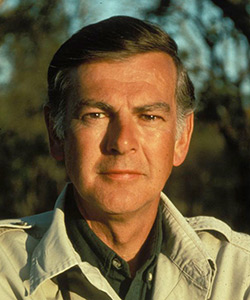 |
Associate Fellows: |
||
|
Physiology, Pavia. |
Angelo Albini is Professor of organic chemistry and a member of the Department of Chemistry. His main interest are in synthetic organic chemistry under mild condition, mechanism of organic reactions and the role of intermediates, photochemistry and biological activity. He is Director of Studies in Chemistry,. |
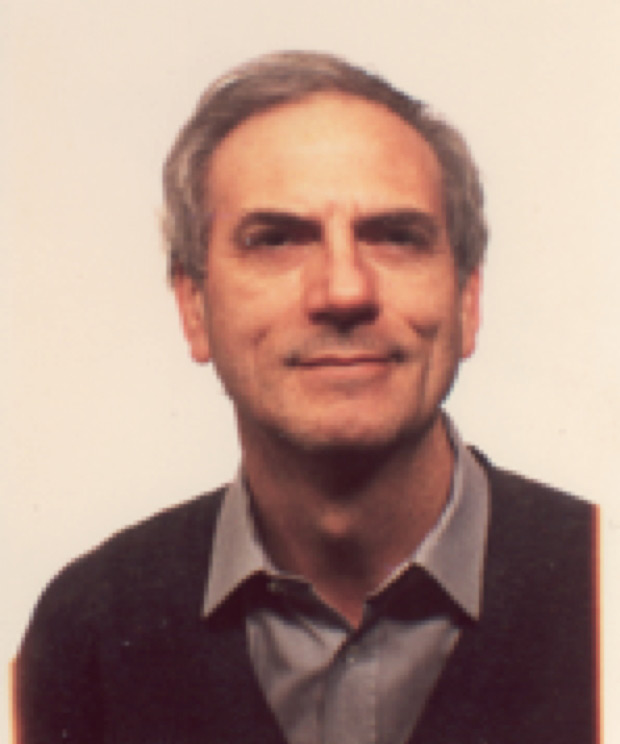 |
|
Physiology, Pavia. |
Roberto Bottinelli is Professor of Physiology, a member of the Department of Molecular Medicine and Deputy Chancellor for Research. His main research interests is the physiology of skeletal muscle, the understanding and control of muscular contraction at a molecular level and the abnormalities of muscular contractions in selected genetic diseases. He has also contributed significantly in the area of cell therapy of muscular dystrophy, a severe genetic disease, and provided initial demonstration of the potential of this approach. He is Director of Studies in Medicine (pre-clinical). |
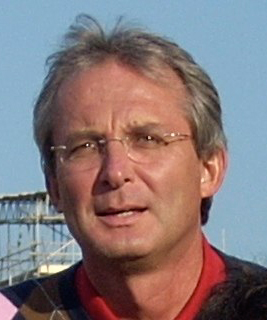 |
|
Engineering, Pavia. |
Carlo Cinquini is Professor of Construction Science and a member of the Department of Civil and Architectural Engineering. His main research interest concern topology optimisation with stress constraints, topology optimisation of incompressible media, eigenvalue-based optimisation for isolation devices and aseismic structures. His most recent topics of research include the optimisation of extreme and advanced materials such as micro and macro-cracked bodies and functionally graded materials (FGM). He is Director of Studies in Engineering (Construction). |
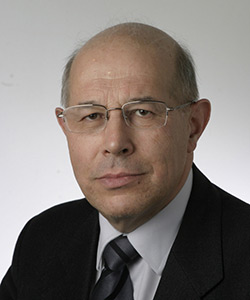 |
|
Mathematics Pavia |
Maurizio Cornalba is Professor of Algebra and a member of the Department of Mathematics. He studied at Pisa (University and Scuola Normale Superiore) and at Princeton University. He has taught at Princeton, Harvard University and the University of California at Berkeley. His main scientific interests are in algebraic geometry and complex geometry, with a special focus on the geometry and topology of moduli spaces of curves and of other algebro-geometric entities. He has a side interest in entomology, and especially in bumblebees. He is a member of the Accademia dei Lincei and a recipient of the medal for mathematics of the Accademia Nazionale delle Scienze. He is Director of Studies in Mathematics. |
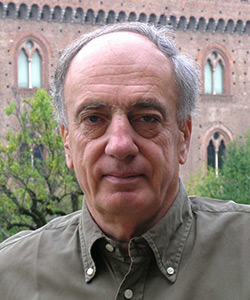 |
|
Engineering, Pavia. |
Antonella Ferrara is a Professor of Automative and Process Control. She has a first degree and a PhD in Engineering from the University of Genova, became Associate Professor at the Faculty of Engineering of the University of Pavia in 1998 and a full Professor since 2005 at the Department of Industrial and Information Engineering. She is a co-Director, together with Giuseppe de Nicolao and Lalo Magni, of the Identification and Control of Dynamic Systems Laboratory (ICDSL). Her research activities are in the area of sliding mode control, with application to robotics, automotive control, and process control. She is Director of Studies in Engineering (Electronics). |
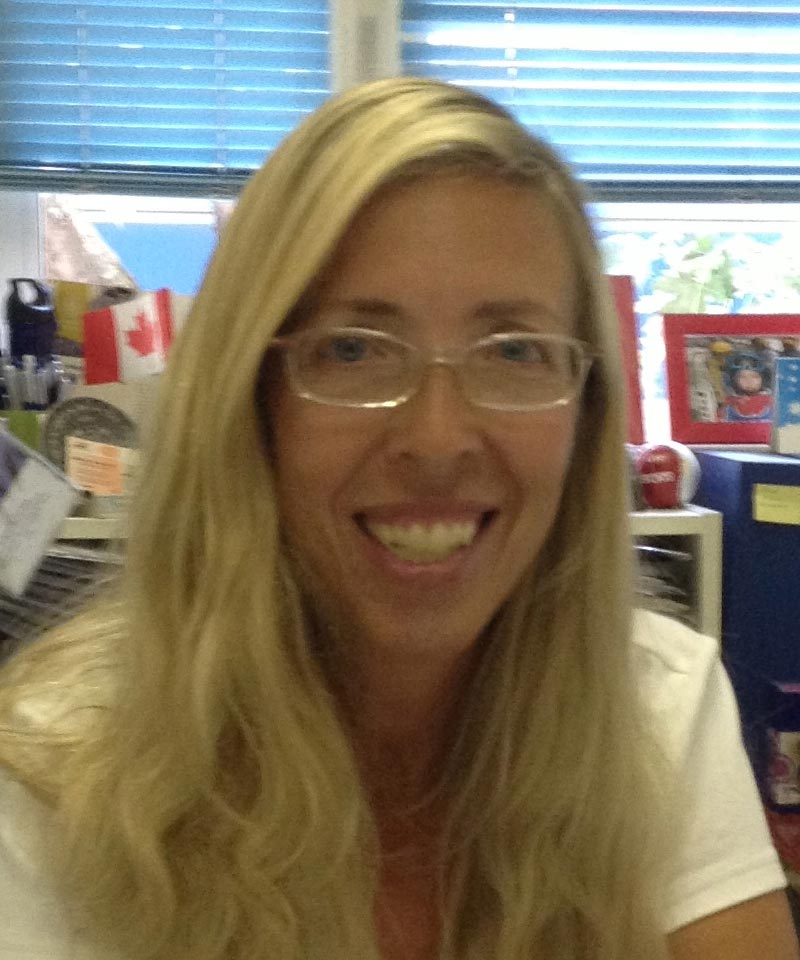 |
|
Pharmacology, Pavia. |
Stefano Govoni is Professor of Pharmacotherapy and Toxicology at the University of Pavia, a member of the Department of Drug Sciences and the Director of the Laboratory of Neurobiology and Neuropharmacology of Aging and Neurodegenerative Diseases. His main research interests are in the areas of dopamine receptors, endogenous opioids and neuropeptide transmitters in the context of brain aging and age-associated cognitive impairment and dementias. Special interests are in the field of Alzheimer Dementia (AD) and specifically the pharmacology of the amyloid protein precursor. He is Director of Studies in Pharmacology. |
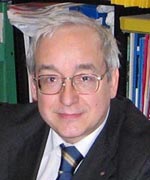 |
|
Physics, Pavia. |
Giorgio Guizzetti is Professor of Electromagnetism and Solid State Spectroscopy and a member of the Department of Physics. His main research interests are photonic crystals and their application in control and manipulation of light propagation, notably localisation of light into ultra-small volume space regions (nanocavities). Other interesting applications of photonic crystals are the all-optical transistor and the low-threshold laser. He is Director of Studies in Physics. |
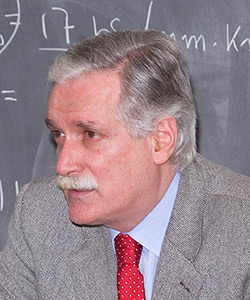 |
|
Pavia |
Giovanni Magenes has a first degree in Electronic Engineering from the University of Pavia and a PhD in Bioengineering from the Polytechnic School in Milan. He carried out post-doctoral research at INSERM in Lyon and at the Universite’ di Provence before being appointed to a Professorship in Biomedical Signal Processing at Pavia. His main research interest lie in the applications of control theory to biological systems, modelling eye-head-arm coordination, intelligent biosignal analysis, soft computing methods in biomedical applications and tissue engineering. He is Director of Studies in Bioengineering. |
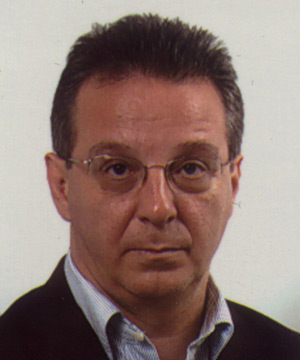 |
|
Language & Literature, Pavia. |
Maria T Mazzilli is a Professor of History of Medieval Art and Art Techniques and a member of the Department of Humanities. She has a first degree in Literature and postgraduate studies in Art and Archeology. Her broad interests is in new procedures for classification and assessment as well as in the science of conservation and restoration. Her specific research interests lie in the application of modern tools to the study of late medieval architecture and sculpture in Northern Italy (with a special focus on major buildings and artifacts in the Pavia area) and in the contributions that these studies offer for wider historical analysis. She is Director of Studies in Humanities (Language Studies and Literature). |
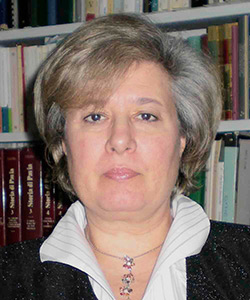 |
|
Law, Pavia. |
Mario Pampanin is Professor of Law and Cultural Heritage and a member of the Department of Humanities. His recent research interests are in the conservation area, notably the conservation of trees, woods and forests, not only a traditional economic resource but an important subject in the field of cultural heritage and natural beauty. This matter is regulated by different branches of law: Forest law but also Environmental law, Town and Country planning law and - more recently - by the rules for Landscape preservation. Thus, a number of important issues in this area require coordination between the land-use planning procedures and the different systems of control. He is Director of Studies in Law. |
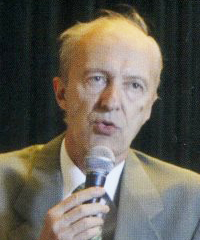 |
|
Economics, Pavia. |
Giorgio Rampa is Professor of Economics at the University of Pavia. He studied at the University of Pavia (Collegio Ghislieri) and did post-doctoral research at the University of Cambridge (Darwin College) where he won the Stevenson Prize of the Faculty of Economics and a Grant from the Adam Smith Fund in 1981. He also won a Prize from the Economists' Italian Society in 1988 for his PhD dissertation. His teaching and research interests are in the area of Microeconomics. He coordinates two PhD Programmes, the DREAMT Programme at the University of Pavia and the ELI Programme at the Institute of Advanced Studies (IUSS). He is Deputy Director of the Department of Economics and Business Studies. He is Director of Studies in Economics. |
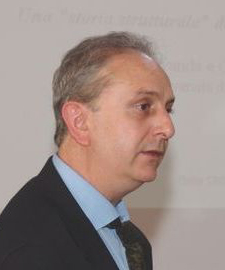 |
|
This email address is being protected from spambots. You need JavaScript enabled to view it., Ethics & Medicine, Pavia |
M. Giovanna Ruberto is Professor of Bioethics and a member of the Department of Public Health and Experimental and Forensic Medicine. She directs a the Centre for Bioethics, a local think tank active in bringing major topics of research in the field of Ethics and Medicine to a wide audience in Pavia. Her main research interests concern the impact of new technologies, including information technology on Medicine. She is Director of Studies in Ethics & Medicine. |
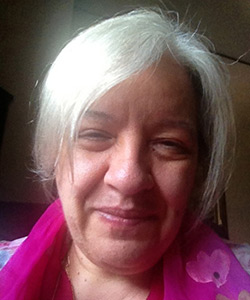 |
|
Genetics Pavia |
Antonio Torroni is Professor of Genetics, a member of the Department of Biology and Biotechnology and the Coordinator of the PhD Program in Genetics, Molecular and Cell Biology. He graduated in Biological Sciences at the University La Sapienza of Rome and received his PhD in Genetic Sciences (and Molecular Biology) from the University of Pavia. He was a Postdoctoral fellow and Assistant Professor at Emory University (USA) and subsequently held appointments at the Universities of Rome and Urbino. His main research interests include the study of genetic variation in human and animal populations. He is a leading expert in human mitochondrial DNA variation and his studies have provided important contributions to the definition of the origin, evolution and dispersal of human populations as well as the role played by "normal" sequence variation of human mitochondrial DNA in some pathologies. He is Director of Studies in Biology and Biotechnology. |
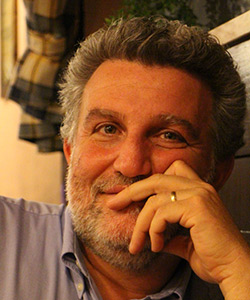 |
|
Philosophy Pavia
|
Luca Vanzago is Professor of Theoretical Philosophy, and a member of the Department of Humanities. His main fields of research are Phenomenology, Process Thought, Contemporary Philosophy of Mind and Consciousness, and the Epistemology of Pain and Suffering. He has widely published in Italy and abroad. Among his publications, the books Modi del tempo (2001), L’evento del tempo (2004), Coscienza e alterità (2007), Breve storia dell’anima (2009), Merleau-Ponty (20012), Coscienza (2013) (with Faustino Savoldi and Mauro Ceroni, 2013), The Voice of No One (in press). |
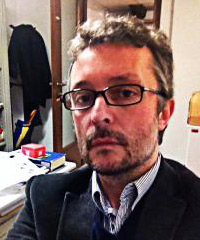 |
Research Fellows: |
||
About Volta

Collegio Alessandro Volta is the newest College at the University of Pavia, one of the most ancient Universities in Italy. The College was founded in year 2000 by ISU, a Regional body supporting University education. In 2007 ISU was replaced by EdISU, a new body encompassing not only Regional government but also City government and the University of Pavia. Currently EdISU has responsibility for the funding and management of nine University Colleges and two Halls of residence in Pavia.
Collegio A Volta is located in the main University campus close to several University Departments, the CNR Institute of Molecular Genetics and the San Matteo, Salvatore Maugeri and Casimiro Mondino Medical Research Institutes. The College is named after A Volta, the Italian scientist and Professor at Pavia who discovered the battery cell in 1800 and made a number of other outstanding contributions to Physics, and electricity in particular, including the principle on which modern solar panels work. The College provides an informal life style in a modern building located two miles from the city centre and connected to the city by a regular bus service. Volta provides self-catering accomodation, libraries, wireless internet, computers, seminar rooms and lecture rooms and generous parking.
Mission
The mission of Collegio Volta is threefold. The first is to encourage and admit to College a large number of graduate students as this is deemed to constitute a strong cultural environment in its own rights and for undergraduate studies as well. The presence of a large number of graduates enables Volta to offer supervisions to undergraduates and a strong programme of graduate seminars that enhances the academic life of undergraduate students and all College members. The second mission of Volta is to encourage and admit a large number of students from abroad, both undegraduates and graduates, in order to foster a truly international community of scholars and build the first truly international College at the University of Pavia. Finally the third mission is to act as a major force in the cultural life of the University and the city by promoting debate on a variety of areas. Among these the public understanding of science and the impact of science on society are prominet themes of College work and are well reflected in the topics of the annual Volta Lecture, the Colloquia and the Symposia series.
Applications
Students are admitted to Collegio Volta by one of two ways:
- Undergraduate students and students of MSc Courses (Lauree Magistrali) apply formally via the EDiSU website. They may, however, indicate Volta as the College of first preference in the application form and they are encouraged to contact the College in order to discuss their proposed studies at Pavia. Foreign students in particular, who may not be fully fluent in Italian and may come to Pavia to enrol in one of the Courses taught in English, are specially encouraged to seek advice and support from the College with their application papers to be submitted to EdISU. The College is delighted to offer support throughout.
- Students of MA Courses, PhD students, medical graduates attending post graduate Courses and postdoctoral fellows apply directly to the College by writing to the College Master This email address is being protected from spambots. You need JavaScript enabled to view it. and sending a brief letter of their proposed Course of study in Pavia and a currriculum vitae detailing their previous studies and degrees.
English Language
The English language is at the core of the life and work of Collegio and there are three fundamental reasons for this.
The first reason is a general one: since the end of World War II, English has become the de facto lingua franca of the world of learning, especially at University level. It is perfectly natural therefore that, on this ground alone, English is a primary language of an Institution such as Volta. Jus in the same way in which, for centuries, Latin was used as the primary language of acadaemia outside Italy.
The second reason is the special international vocation of Volta. The College hosts a large number of students from abroad (>30% in 2016/17 against an average of 6% in the other Colleges of the University of Pavia). At Volta therefore, the English language is needed even at a practical level in order to enable students to communicate effectively and and share their life and work in College.
Thirdly, the United Kingdom is the top destination abroad for Volta students seeking Erasmus placements, postgraduate Courses and training, post-doctoral fellowships and long term-employment.
The commitment of Volta to English language is in front of everyone in Pavia: 141 College students have entered English Courses that were constructed, promoted and run by College for three years and that were subsequently extended to other Colleges with support from EDiSU (the governing body of Collegio Volta and other ten Colleges in Pavia and Cremona). Students should refer to English Courses webpage for further information about the Courses.
College Placements 2013/14
EdISU, the governing body of Collegio Volta and several other Colleges in Pavia, has published details of the application procedure for places at EdISU Colleges for the academic year 2013/14. The deadline for application is 6 September 2013. Detailed instructions (in Italian) are available at http://www.edisu.pv.it/index.php?page=accesso-ai-collegi-e-residenze. Prospective undergraduate students from foreign countries interested in a placement at Collegio Volta may contact the College Master (This email address is being protected from spambots. You need JavaScript enabled to view it.) for advice and support during the application process.
EdISU Bursaries 2013/14
The call for application for bursaries for the academic year 2013/14 for undergraduate and MSc students studying at the University of Pavia has been published by EdISU, the governing body of Collegio Volta and several other Colleges in Pavia. The deadline for application is 30 September 2013. Detailed instructions (in Italian) are available at http://www.edisu.pv.it/index.php?page=borse-di-studio-ordinarie. Prospective undergraduate students from foreign countries interested in these bursaries and in a placement at Collegio Volta may contact the College Master (This email address is being protected from spambots. You need JavaScript enabled to view it.) for advice and support during the application process.
Examination Results 2012/13
The College has collected the results of recent examinations (May-July) from all undergraduates and MSc students. The results will be assessed using EdISU guidelines and used for confirmation of College placements. They will be published on 5 August 2013 in the Examination Results pages of the College website. These pages provide a statistical evaluation of the academic performance of College students and highlight ways in which teaching and assessment can be improved in future academic years.
Treasure Hunt 2012/13
The College wishes to congratulate the Volta students who proudly won the 2012/13 edition of the Treasure Hunt, a traditional intercollegiate event that attracts interest and passion among University College students in Pavia. The students of Volta will now organise a large fete on the College grounds open to the students of all the Colleges that have taken part in the Treasure Hunt.
Social Life
The College has an active social life programme. The first social event of the academic year is an autumn fete at the end of freshers week. A second event typically takes places on Saint Martin’s Day. The third event is the College Christmas Party and the final event is the June Ball.
Freshers Party
The College celebrates the arrival of new students with a large Party at the end of Freshers Week. The event is organised by the Volta Students Union Party and typically takes place on Saturday evening and night at the end of the second week of October on open College grounds as well indoor (in the central area of the main corridor on the ground floor). Food, drinks, music and dancing are on the programme.
Saint Martin’s Fete
A second traditional Volta social event takes place on Saint Martin’s Day (November 11th). This is an indoor event organised by the Volta Students Union on the ground floor of the College. It offers food, drinks, music and dancing as well as a touch of typical Saint Martin’s Day traditions, namely roasted chestnuts and vin nouveau.
Christmas Party
This traditional event takes place each year typically on the Thursday of the second week of December. It is organised by the Volta Students Union and involves generous amounts of hot food and wine, a variety of traditional Italian Christmas cakes and a large supply of party wines. Music and dancing are available and students are encouraged to put on stage some stage performance.
June Ball
After a few years in which Volta students have failed to organise a summer College Ball and had toyed with the idea of a Ball organised far away from College premises and involving thousands of participants, 2013/14 may finally see a return to a proper College Ball on College premises. The Volta Students Union has been encouraged to consider a Ball on the grounds at the front of College (the car park area) while College awaits completion of the North Wing and the release of additional ground space that could offer alternative location for the marquee. Collegio Volta believes that a summer Ball is an important event for the social life of the College and looks forward to seeing the return of this event to College.
More...
Sports & Social Life
Volta is proud to include among its members athletes of Olympic and world class status and now has a strong line up in several individual and team sports such as archery, rowing and football. Further the College is in the process of widening sport activities to include tennis, rugby and volleyball from 2013/14. Volta has no sport grounds at present as a result of the construction work for the North Wing. However, the grounds of the University Sports Centre (CUS) are within walking distance and Residenza Golgi, another EdISU College within cycling distance, has kindly granted access to their football pitch and tennis court to the students of CollegioVolta for the academic year 2013/14.
Clubs & Societies
The College has instituted a number of Clubs & Societies open to Volta students and College staff for the purpose of promoting the cultural and social life at Volta. The Clubs & Societies of Volta work informally through meetings and other activities - internal and extra-mural - and make special efforts to engage new students and involve them in College life. Students and staff may enrol into one or several Clubs & Societies, depending on their interest(s). On an annual basis members of each Club or Society elect a secretary who will coordinate meetings and other activities. Selected work of the Volta Clubs & Societies will also be advertised outside Volta through the official College website, social networks and email lists in order to reach out to other University students.
![]() Loading, please wait...
Loading, please wait...
Seminars, Colloquia etc
Volta hosts a regular programme of Seminars. It also hosts a number of Colloquia and Symposia. College seminars include contributions from external speakers on a variety of subjects. They also include an internal seminar programme, available on the College intranet, in which talks are given by postgraduate members of the College, ie post-doctoral fellows, PhD students, postgraduate medical students and, less frequently, by final year undergraduates. Colloquia are open to the general public, are held more rarely and focus on science policy or major issues at the interface between science and society. Their primary aim is to foster the public understanding of science and support policy decisions at University level. Symposia involve a wide range of subjects. The first Symposia initiative held by College has been a Graduate Symposia series aiming to promote graduate's education at the University of Pavia and stronger interactions between the humanities and the experimental sciences.
![]() Loading, please wait...
Loading, please wait...
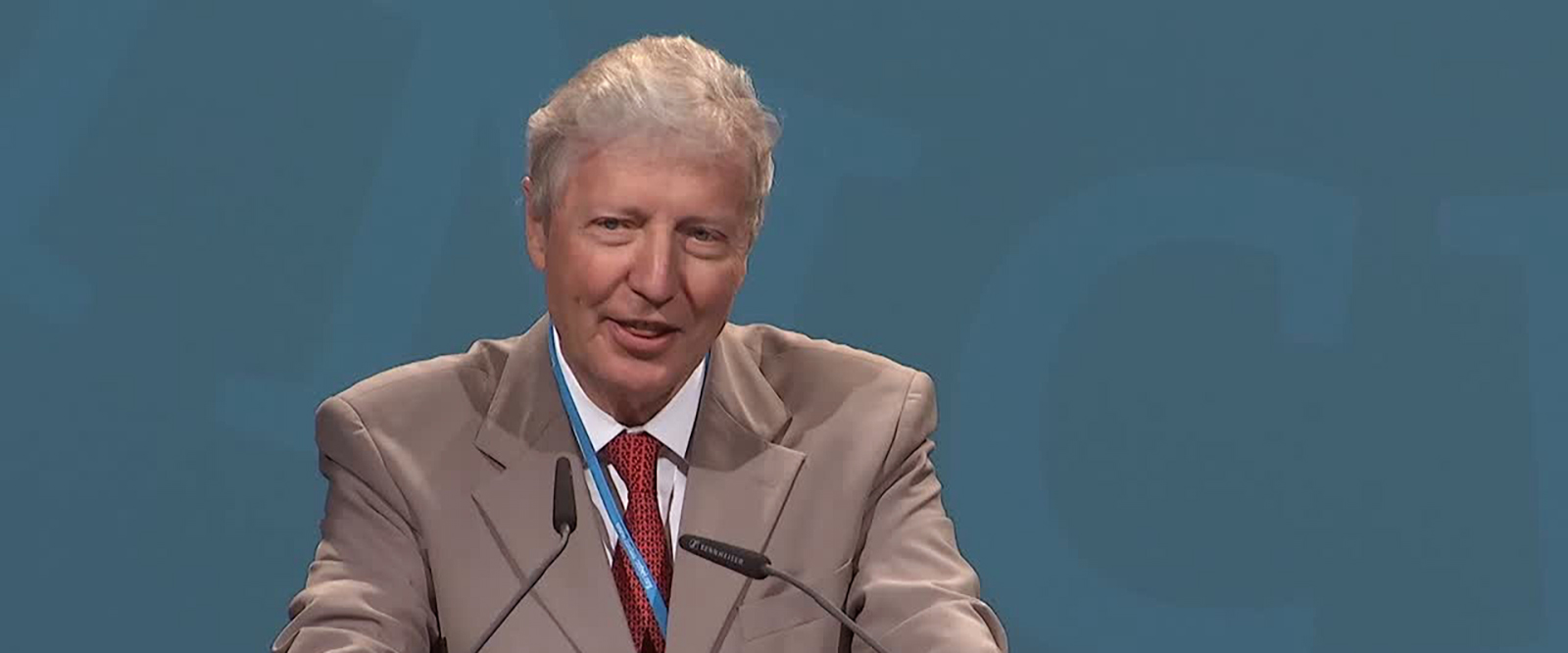
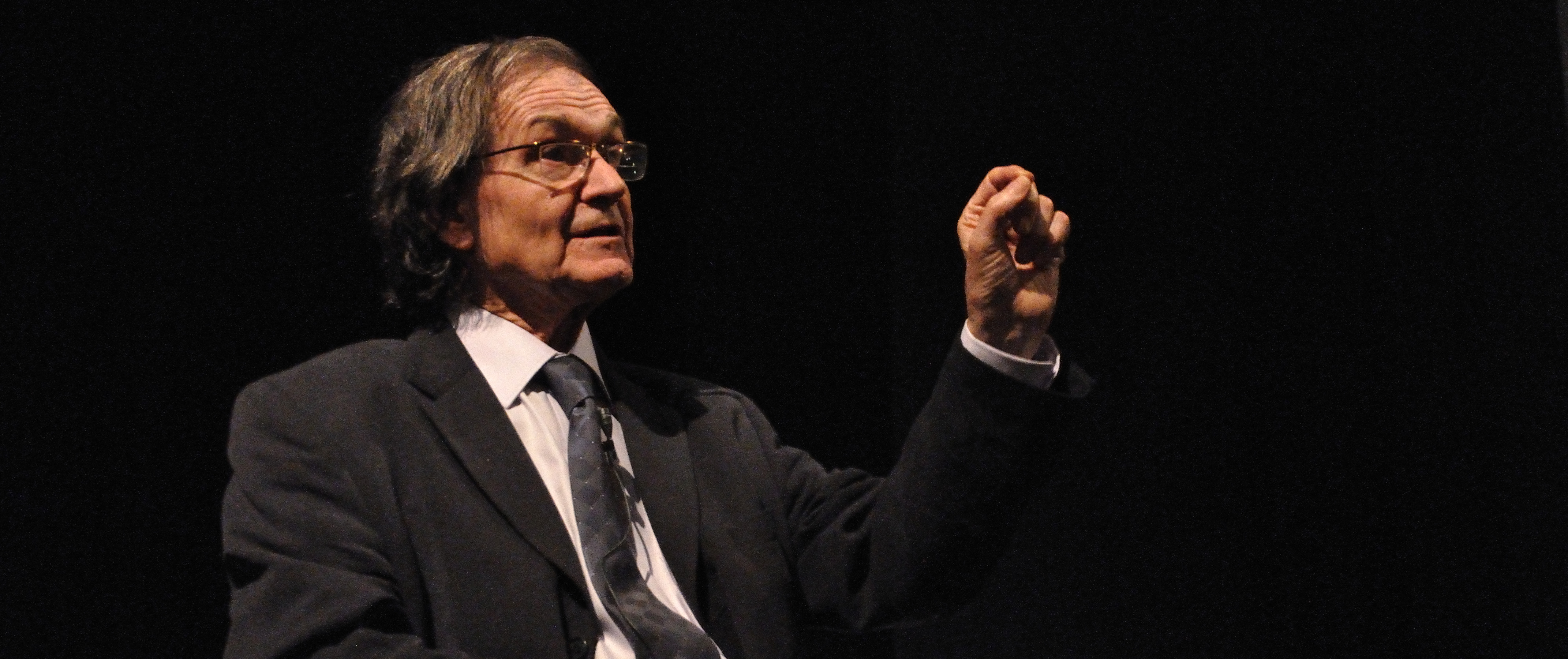
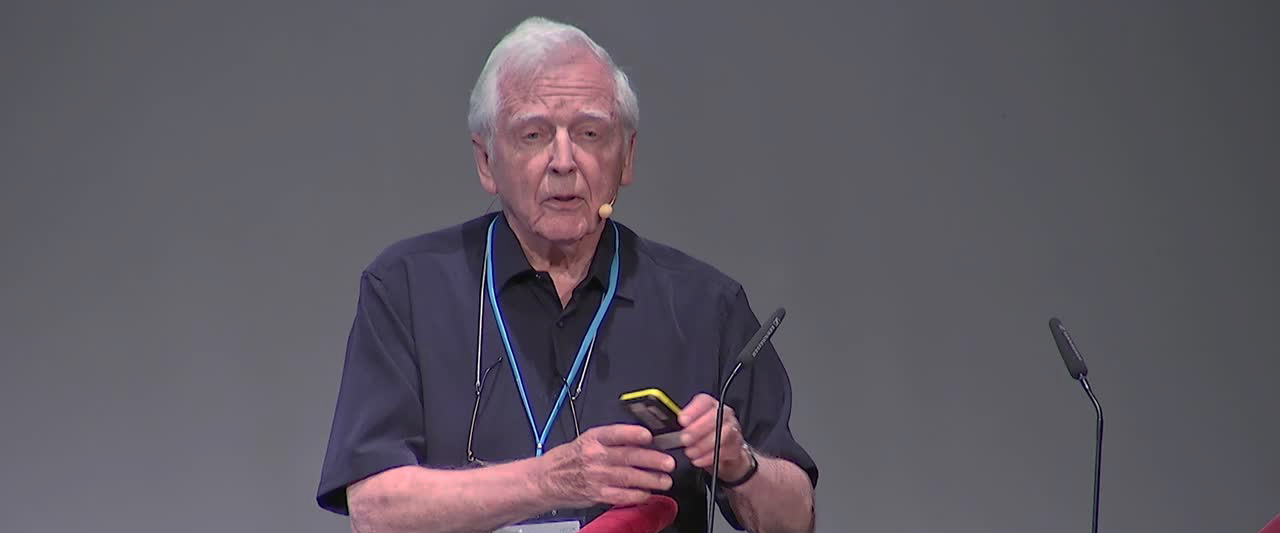
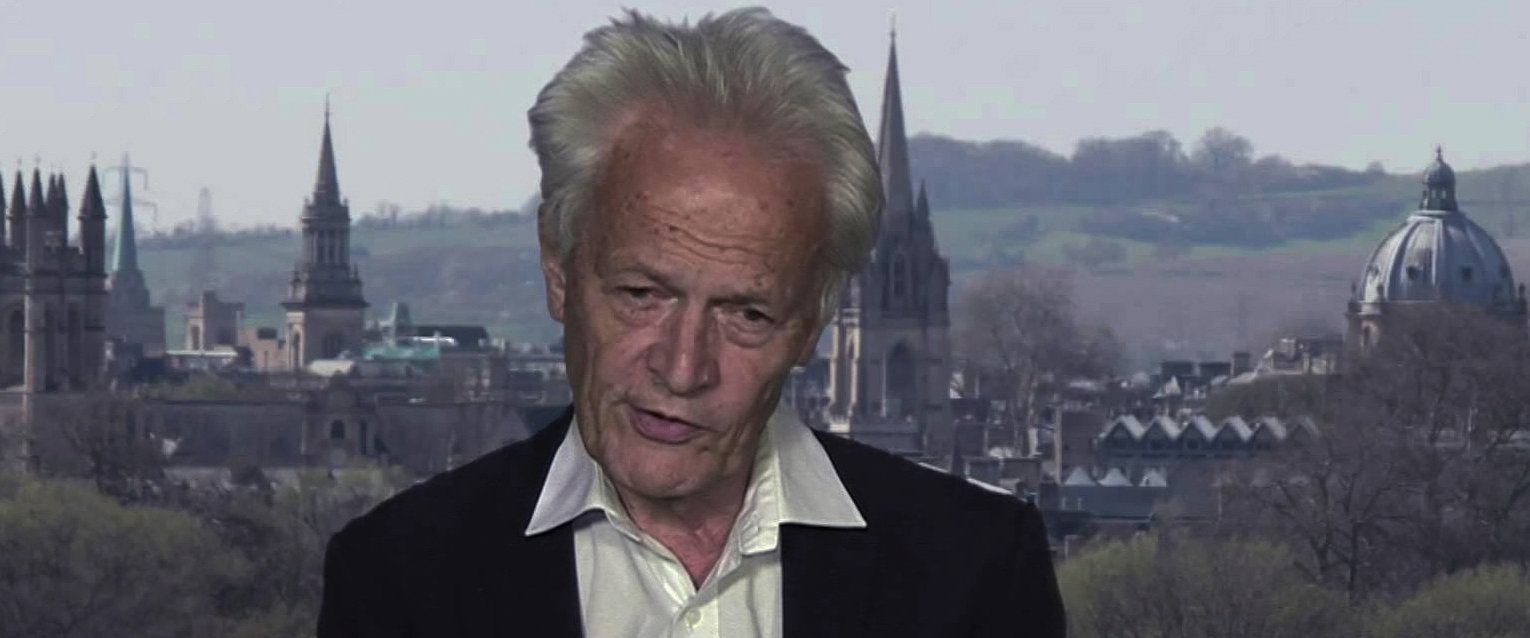
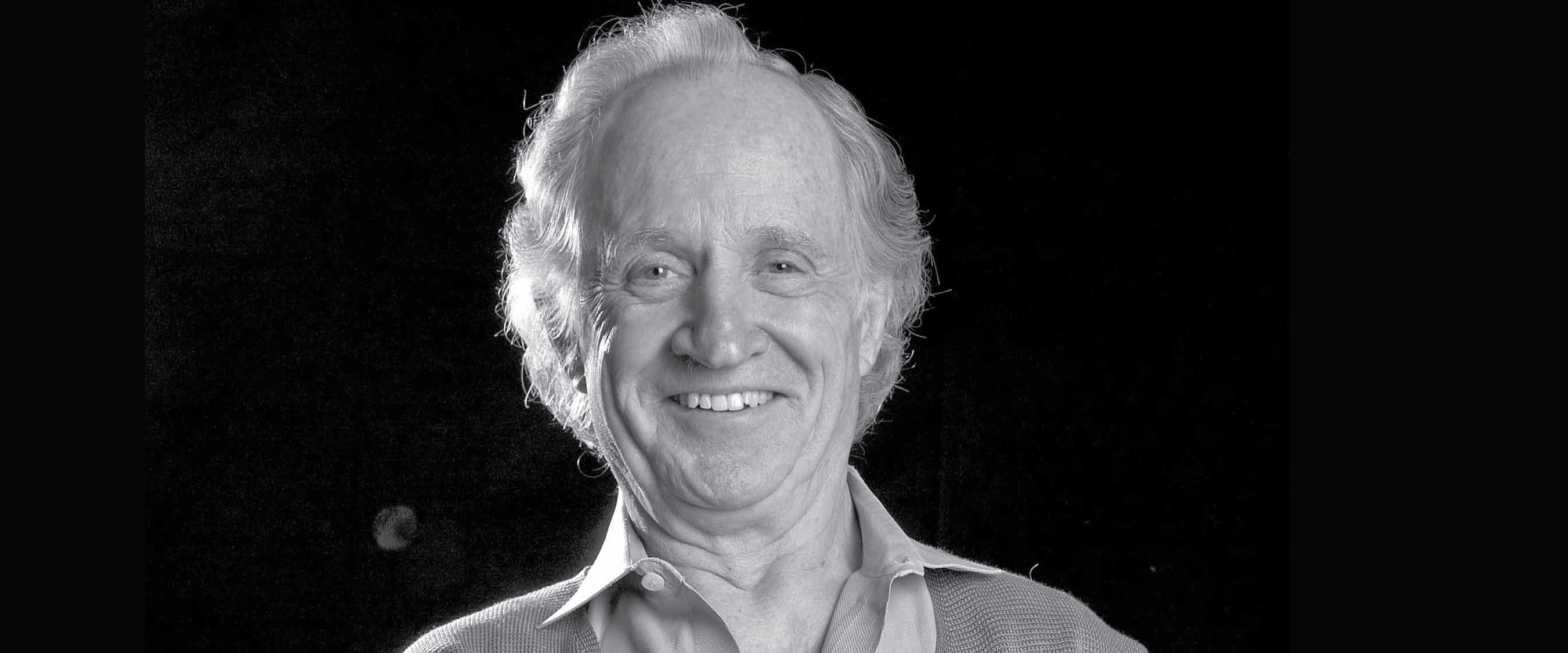
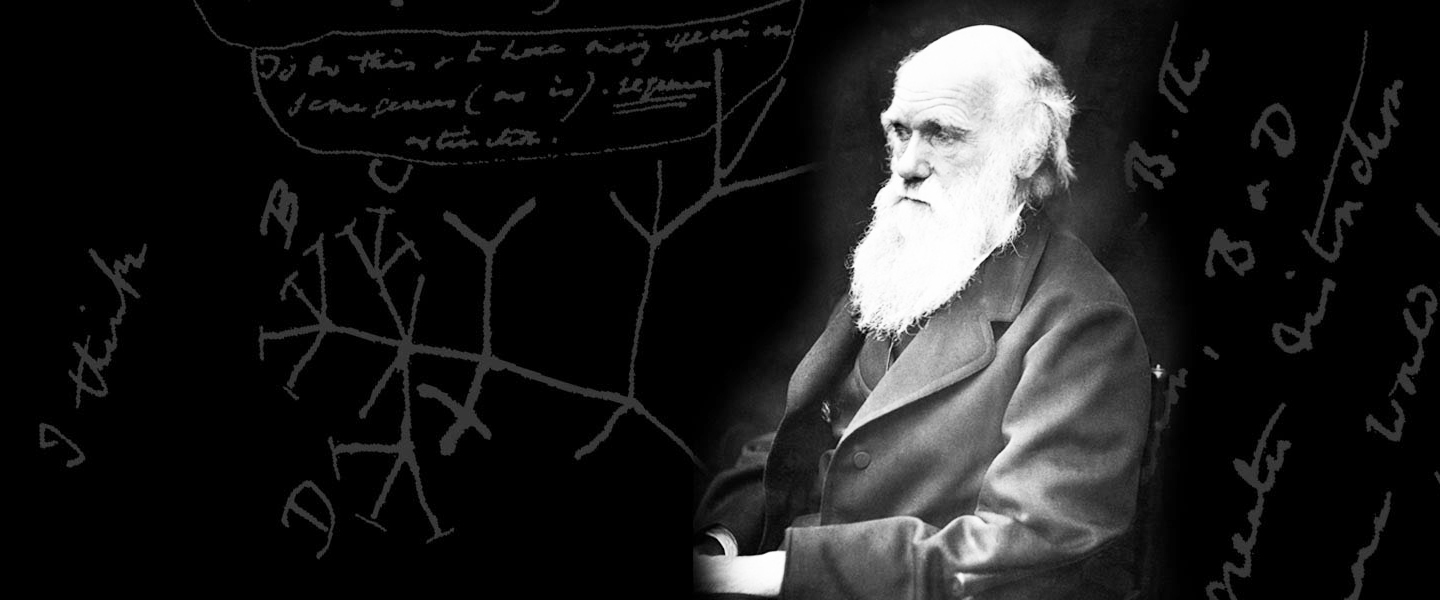






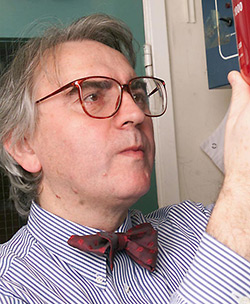
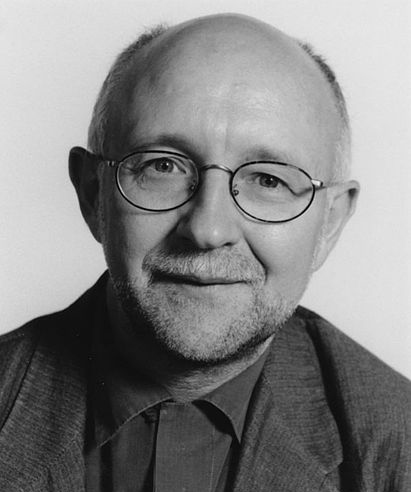
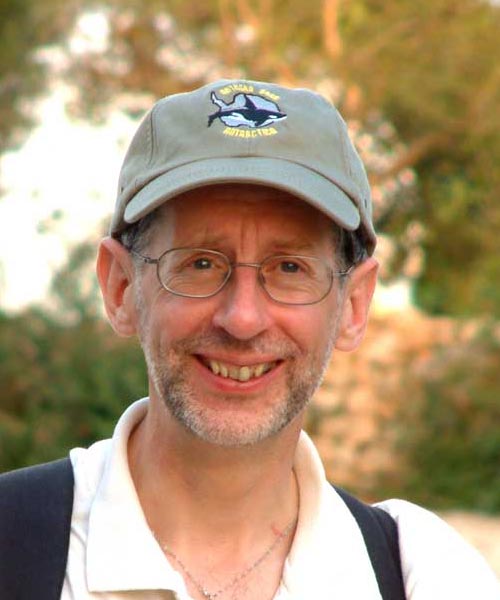






















 Articles
Articles